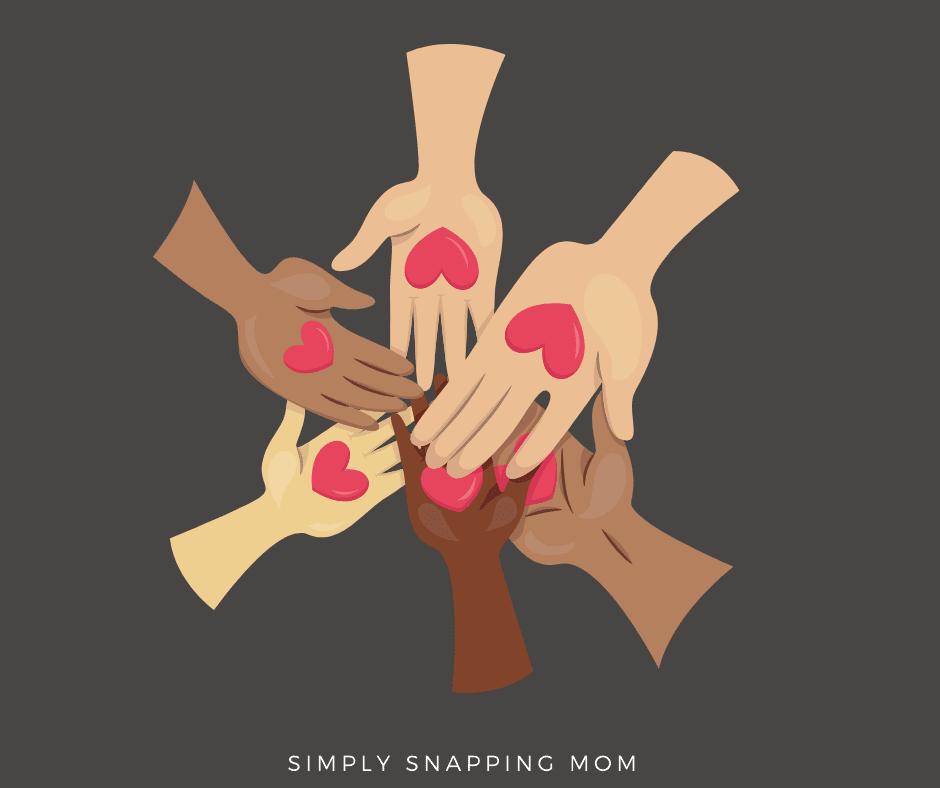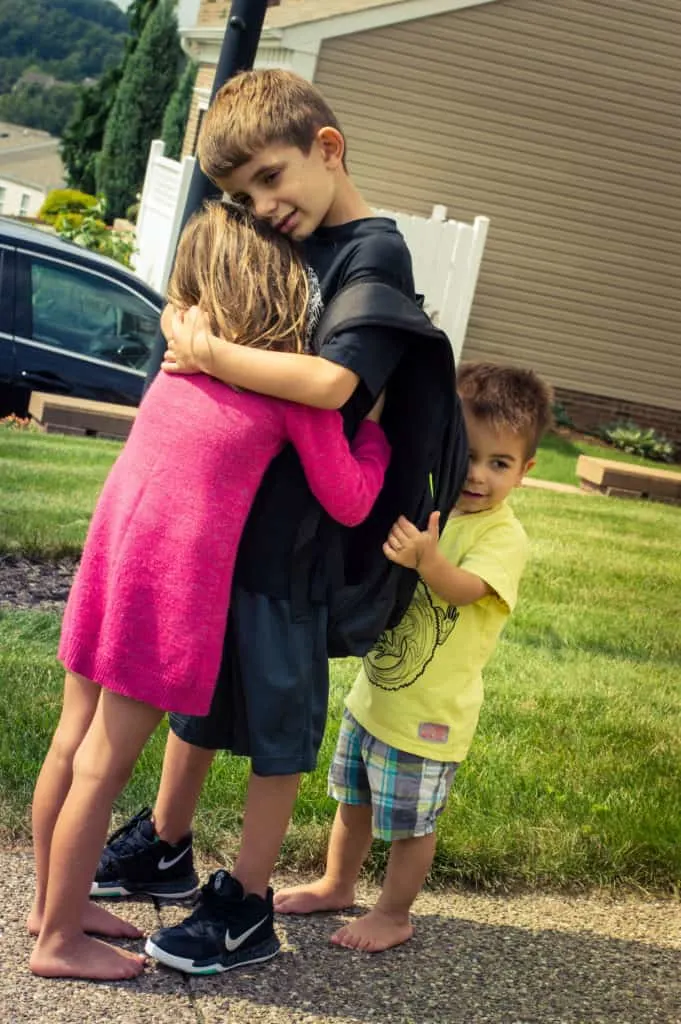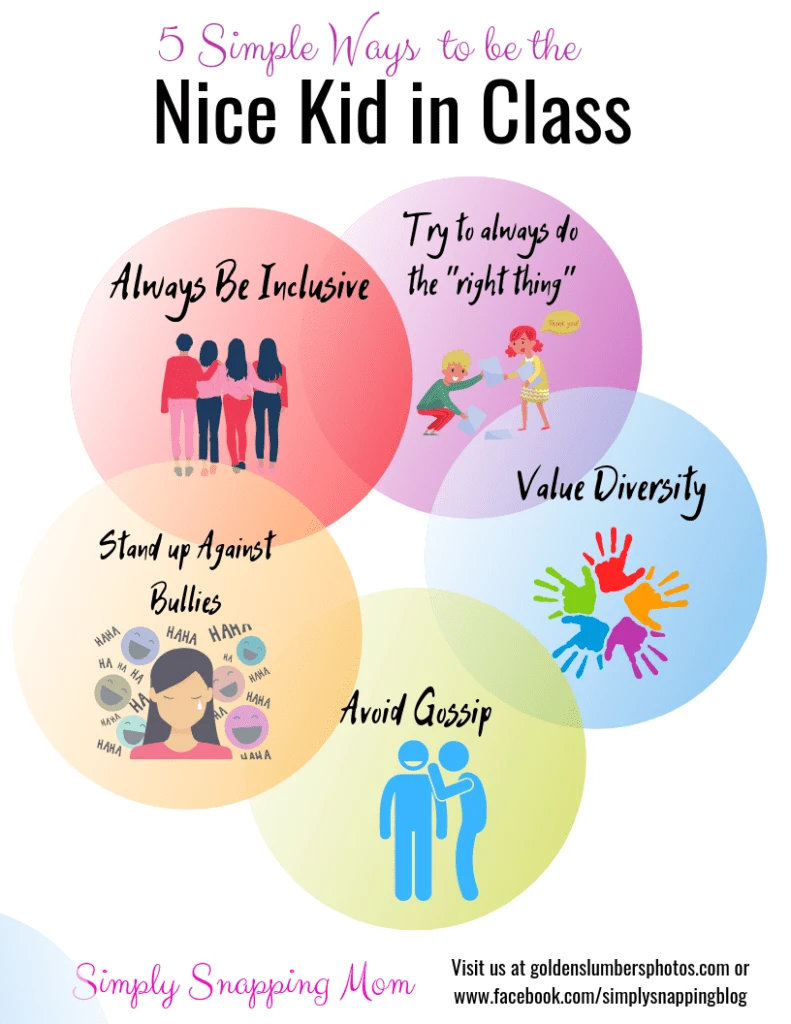Now, more than ever, parents need to make it a priority to raise kids who value diversity.
Diversity, in simple terms, refers to understanding that each individual is unique. There are differences in our race, age, ethnicity, gender, sexual orientation, socio-economic status, physical abilities, religious beliefs, and political beliefs.
Although this seems like common sense, events throughout history have proven that some humans don’t always value diversity.
If we want to change the world, we need to deeply ingrain these values in our children starting at an early age.
As parents, it is our responsibility to make sure our children understand and celebrate diversity, and that bully qualities dissolve and don’t persist into adulthood.

In the past decade, schools have made great strides in stepping up their anti-bully defense systems by bringing these issues to light and preaching consequences.
However, these discussions need to start at home. If you want to raise kind humans, do these 5 things.
1) Educate and Expose Your Kids to Diversity
In my opinion, this is the most important step in the process. Teach your children to value what makes everyone unique.
When your children learn to appreciate the differences in people, no matter what they are, they will grow to be a non-judgmental adult.
Education and exposure are the keys to unlock this lesson.
Teachers and homeschoolers – check out this School Diversity Bulletin Board

Use experiences to expose your children and guide these discussions. You can try:
- Watching documentaries or read books about other cultures
- Openly talking about positive aspects of different people you meet
- Travel with your family, if possible
- Encourage them to ask questions
Most importantly, explain to your children that it is our differences that make us special. Everyone deserves to be themselves, be included, and be treated with respect.
These racial bullying books can help you guide the conversation with your children.
2) Teach the Importance of Being Inclusive
Feeling left out is a huge self-esteem killer. Loneliness can be a terrible, isolating feeling.
Train your kids to actively look for peers that are left out. I tell my kids to look for kids who are sitting alone, look lonely, or are playing by themselves. I encourage them to invite those kids to play with them.
Since my own children can be shy, I tell them that the worst that could happen is that that child says “no thanks”.

I give them this talk before school, on the way to a park, or anytime we are going to be around other kids. Kids need to hear these things repetitively for it to stick.
As parents, we can have a significant impact on promoting inclusive behavior. At my children’s school, there is a table at recess that they call the “buddy table”. The “buddy table” is for any child who doesn’t have a playmate, and kids are encouraged to invite kids sitting at the “buddy table” to play with them.
If you continually have these conversations with your child, they will have no other choice than to become aware of the children around them, and start to hear your words in their head.
3) Coach Their Inner Conscience
As young kids, the devil and the angel on their shoulders aren’t always so obvious.
As parents, it is our job to help define the difference between right and wrong through examples and discussions.
When you open your hearts, you will find countless times each day to have these conversations:
- Use day-to-day experiences: “Your dad is carrying in groceries, it would be really helpful if you grab a bag so he doesn’t have to do it alone.”
- Talk about things you witness together: “On that TV show, that kid was mean to another. What would you do in that situation?”
- Bring up your own experiences: “Once when I was a kid, I saw a group of kids bullying a new girl in school. What should I have done?”
- Assign “chores” to promote positive interactions: “While our neighbors are on vacation, you can water their flowers because it is important to help out others.”
With simple conversations, you can get their little, sponge-like brains thinking in the right direction.
4) Avoid and End Gossip
It is human nature to talk about other people. To keep it simple, what my husband and I try to preach to our children is:
Don’t say something behind someone’s back that you wouldn’t say to their face

We learned the hard way that our children are always listening. If we ever mentioned something about a friend or family member, you can bet that their little ninja-spy ears heard what we said.
Lead by example. Make an effort to stop badmouthing other people, especially around your children. Explain to children how hurtful gossip can be.
5) Stand up Against Bullies
Last year, my daughter was pushed by another kid while waiting in line for the school bus. My son came home proud to tell us that he jumped into action. He stopped the behavior, in a non-physical way, and quickly told a teacher.
I don’t imagine or expect my children to courageously throw themselves between a bully’s fist and a victim’s face; however, I would hope that we have given them tools to stand up against negative behaviors they witness.

Keep the conversations simple. Explain to your children:
- If you see kids being mean, never join in
- If at all possible, stand up for kids if they look upset
- If it continues, tell a teacher or grown-up
For more information on what we are doing to raise kids who love themselves, or how we are teaching our kids that not everyone will like them– click on these links!
Final Thoughts
Recently my son told me that the bus driver asked him to sit in the front. I let out a big GULP. Then, he explained that it was because all the older kids rush off the bus and he tells them to slow down so that the kindergartners can get off first. My heart melted.
Having these conversations with your children at a young age will start the process of imprinting these values in their hearts.
Lastly, be a good example for your children. Be “The Nice Kid” at work, home, PTA, etc.
You can’t expect them to follow the things you tell them if you don’t live by them yourself.
Print this as a reminder for your child:

If you found this helpful, share it! And check out some other posts:
- 11 Common Ways Parents are Accidently Raising the Weakest Generation
- 5 Remarkable Life Lessons Kids Learn from Watching Dad
- Raising Free Thinkers: 5 Ways to Empower Kids to Think Like Leaders
- 9 Simple Ways I Cured My Anxiety Without Medication (and Why it Worked)
- 21 Deep Conversation Starters That Actually Get Kids Talking


"Asking For a Friend" Parenting Advice -
Monday 21st of December 2020
[…] Click Here to Raise Kids who Value Diversity […]
Katie
Tuesday 9th of June 2020
These are such great tips! My LO is still so young, but I definitely plan to start teaching her some of these things at an early age.
The Impact of a Single Expression: The Mic-Drop of Parenting Advice -
Tuesday 28th of January 2020
[…] articles on things such as “5 Ways to Wire Your Kids Brain for Happiness“, “5 Ways to Raise Nice Kids“, and “7,000 Ways to be a Good Mom”, I realized one huge […]
Chocoviv
Saturday 12th of October 2019
Great tips!
Sophie
Tuesday 10th of September 2019
Wow. For a mom like me, this is such an useful post.